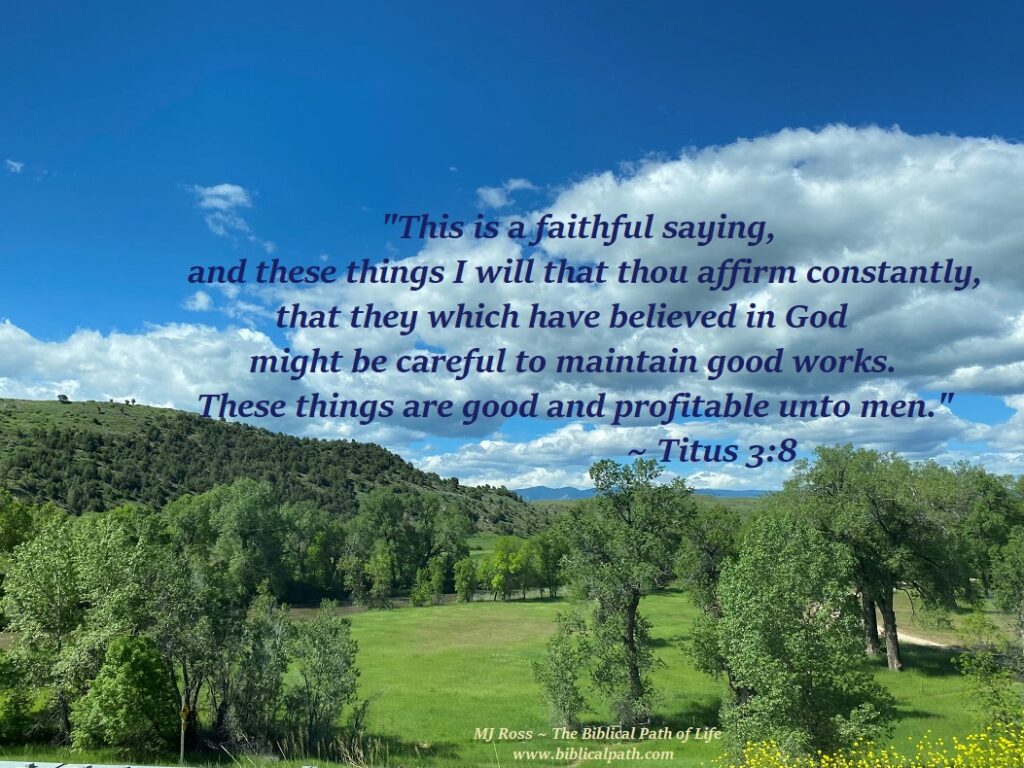
“I tell you that he will avenge them speedily. Nevertheless when the Son of man cometh, shall he find faith on the earth?”
Luke 18:8
Jesus told a parable about a woman who persistently cried to a judge day and night to “Avenge me of mine adversary” (see Luke 18:1-5). The judge would not, but after time passed, the judge agreed to avenge her “lest by her continual coming she weary me.” Because the woman repeatedly asked this of the judge, he granted her request. Jesus said to hear what the unjust judge said. Jesus wanted the people to understand something important.
Jesus had just been teaching His disciples of the end times, and His coming kingdom (see Luke 17:20-37). He wanted them to know what was expected of them. God hears His people, and He will avenge them of their adversaries – if only they will ask it of Him. Do Christians have adversaries? We all know Satan is our Adversary (1 Peter 5:8). We are instructed to cast all of our cares upon Him (Jesus) (see 1 Peter 5:7), and then we are able to recognize that our adversary, the devil, is trying to destroy us. We are able to cast our cares upon Jesus through prayers. “And shall not God avenge his own elect, which cry day and night unto him, though he bear long with them?” (Luke 18:7). God desires that we take our requests to Him. Jesus is declaring that God’s people are to pray, with faith, that God will hear and answer, and Christians are to persevere in those prayers. We know that there are many adversaries – especially in the world today. Many Christians are persecuted and oppressed revealing a great need for prayer in these days “… but the prayer of the upright is his delight” (Proverbs 15:8b). Often times in Scripture, we are encouraged to ask for what we need. Remember what Jesus said, “Again I say unto you, That if two of you shall agree on earth as touching any thing that they shall ask, it shall be done for them of my Father which is in heaven” (Matthew 18:19). God will hear our prayers. Yet often times, we fail to pray. However worse than that, we fail to pray correctly. There is something very important that Jesus is looking for in Christians. “Watch ye and pray, lest ye enter into temptation. The spirit truly is ready, but the flesh is weak” (Mark 14:38). Jesus spoke the same thought in Matthew and Luke. In John, Jesus prayed this prayer for his disciples: “14. I have given them thy word; and the world hath hated them, because they are not of the world, even as I am not of the world. 15. I pray not that thou shouldest take them out of the world, but that thou shouldest keep them from the evil” (John 17:14-15). In these words, Christians are to understand that in our spirit, we are ready to be the best Christian we can be. Yet temptation is ever before us to fail in that respect. Jesus prayed that Christians would be kept from the evil that is in this world.
The end of the parable about the widow and the unrighteous judge ends with this though. “I tell you that he will avenge them speedily. Nevertheless when the Son of man cometh, shall he find faith on the earth?” (Luke 18:8). At the end of time, when Jesus returns, will He find anyone of faith on the earth? To better understand what this means, read what the word faith means. Faith means “appropriating what God in Christ has for man resulting in the transformation of man’s character and way of life; marking various predominant traits of Christian character as arising from and combined with Christian faith; meaning Christian knowledge.” Honestly, are there many “Christians” living this kind of faith in our world today? Have many Christians appropriated what God has for us, resulting in the transformation of our character and way of life?
Remember what Paul wrote as an encouragement on what it is that a Christian is called to do: “12. Not as though I had already attained, either were already perfect: but I follow after, if that I may apprehend that for which also I am apprehended of Christ Jesus. 13. Brethren, I count not myself to have apprehended: but this one thing I do, forgetting those things which are behind, and reaching forth unto those things which are before, 14. I press toward the mark for the prize of the high calling of God in Christ Jesus. 15. Let us therefore, as many as be perfect, be thus minded: and if in any thing ye be otherwise minded, God shall reveal even this unto you” (Philippians 3:12-15). We must forget the things behind and press forward to the “high calling of God in Christ Jesus.” We must live in faith, “appropriating what God in Christ has for man resulting in the transformation of man’s character and way of life.”
Do not be discouraged.
Be transformed, by faith, into what Christ wants you to be in Him.
Have you appropriated what God in Christ has for you, resulting in the transformation of your character to be like Jesus?








